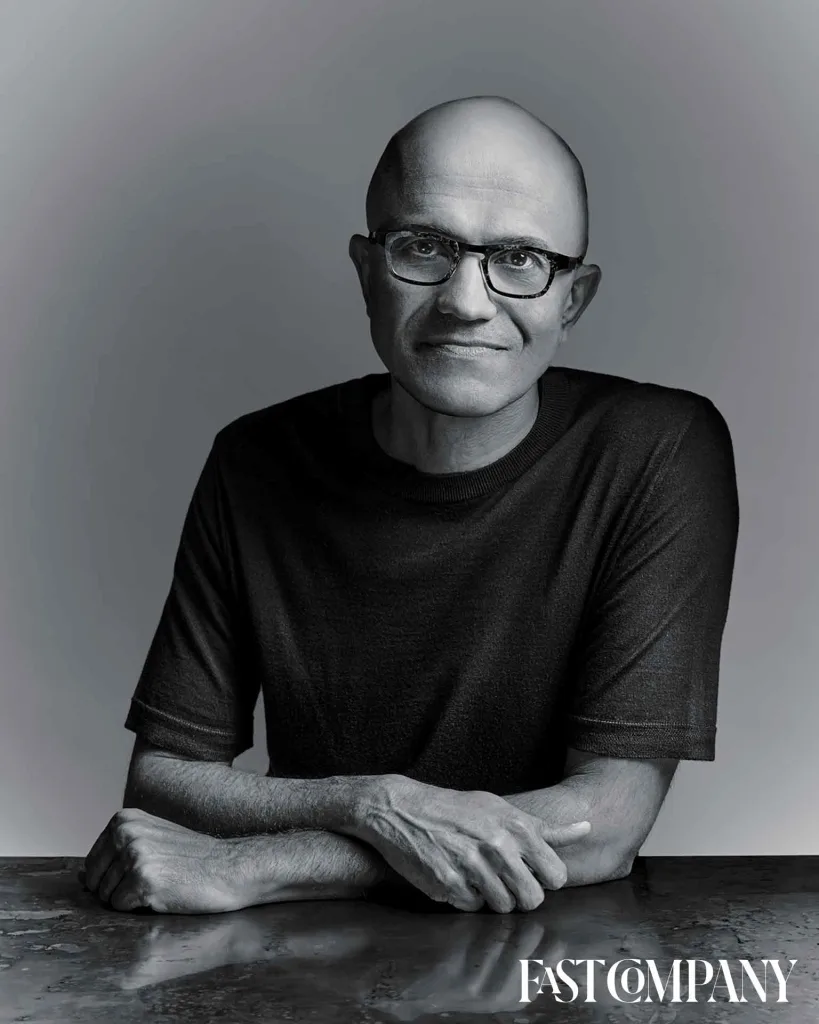This story is part of a special series celebrating the 10th anniversary of the Fast Company Innovation Festival.
Ask Microsoft CEO Satya Nadella about his approach to innovation, and he tends to reminisce. He’ll name-check Skype Translator, the real-time language-translation tool he unveiled soon after being tapped to run Microsoft in 2014—a crucial early sign of his commitment to AI leadership, as he sees it. Or he’ll turn way back to what it was like to join the company in 1992, as computer networks were just taking off—still one of the industry’s most epoch-shifting moments.
In other words, according to Nadella, what seem to be inflection points are usually the result of years of patient investment. “You can’t say, ‘Oh, ChatGPT just launched—it’s time to take [AI] seriously,’ ” he says. “That’s too late.” But his remarkable run at the software behemoth, which has seen its market cap go up more than tenfold in his time as CEO, reflects his ability to focus on new possibilities rather than past glories.
Instead of relying solely on Microsoft’s own long-standing AI research efforts, he made a prescient investment in OpenAI in 2019, getting first dibs on the same groundbreaking technology that powers ChatGPT. This year, he forged a deal with French AI startup Mistral AI, a rising competitor to OpenAI and Google known for its open-source AI. He also pulled off a hiring coup when Google DeepMind cofounder Mustafa Suleyman agreed to head a new Microsoft consumer AI group.
Along the way, Nadella has resisted the temptation to tamper with key Microsoft acquisitions such as LinkedIn and GitHub. Instead, he’s allowed them to bloom on their own terms, making them far more valuable than if he’d remolded them to be more obviously Microsoftian.

Nadella’s first decade as CEO has not been without some disappointments—the HoloLens augmented reality headset made a splash then didn’t go anywhere, and he has expressed regret that Microsoft exited the smartphone business in 2016. Still, Nadella’s leadership has been guided by his belief that computing will become only more ubiquitous and that Microsoft should spread its bets broadly, learning as it goes. Some initiatives “have worked better than I expected, and some are taking longer than I expected,” he says. “But I’m always coming back to those core principles.”
Jelentkezéshez jelentkezzen be
EGYÉB POSTS Ebben a csoportban

Language is the original technology, the tool we’ve all used to coordinate with each other for thousands of years. Our success in life—both professionally and in relationships—depends on it.

Over 80% of Middlebury College students use generative AI for coursework, a


Instead of worrying about making friends or keeping up with their studies, new college students have a different concern on their minds: dorm water.
“Praying dorm water doesn’t ruin my h


As demand for artificial intelligence technology boosts

Federal auto safety regulators are investigating why
